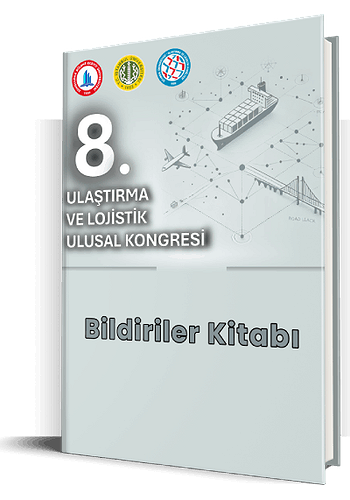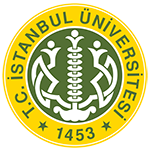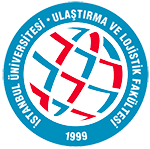
Ulaştırma ve Lojistik Kongreleri
- Türkçe
- Tam Metin
- 2024
Taşımacılık Yönetim Sistemleri (TYS) Yazılımlarının Seçiminde Kullanılan Kriterlerin Belirlenmesi ve Sınıflandırılmasına Yönelik Bir Model Önerisi
Bükra Doğaner Duman
Doktora Öğrencisi, İstanbul Üniversitesi, İstanbul, Türkiye
Gültekin Altuntaş
Doç. Dr., İstanbul Üniversitesi, İstanbul, Türkiye
Bu çalışma, taşımacılık sektöründeki işletmelerin Taşımacılık Yönetim Sistemleri (TYS) yazılımlarını seçerken dikkate aldıkları kriterleri tanımlamak ve bu kriterleri sistematik bir modelde sınıflandırmak amacıyla yapılmıştır. Artan rekabet ve hızla değişen teknolojik gelişmeler, işletmeleri dijital araçlarla süreçlerini desteklemeye zorunlu kılmaktadır. Ancak yazılım seçim süreci sektörel gereksinimler, işlevsellik ve maliyet gibi çok boyutlu değerlendirmeleri gerektirdiğinden oldukça karmaşıktır. Literatürde taşımacılık sektörüne özgü yazılım seçim kriterlerini konu alan çalışmalar sınırlıdır. Bu boşluğu doldurmak amacıyla, bu araştırmada literatür analizinde elde edilen verilerle bir kriter havuzu oluşturulmuştur, ardından sektör profesyonellerinden görüş alınarak kriterler TMS seçiminde kullanılmak üzere değerlendirilmiştir. Araştırma sonuçları, yazılım seçiminde “teknolojik yetkinlik, maliyet ve ücretlendirme, fonksiyonellik, hizmet ve yazılım tedarikçisi işletme” olmak üzere beş ana boyutun önemli olduğunu göstermektedir. Bu boyutlar altında geliştirilen alt kriterler, lojistik işletmelerinin TYS yazılımı seçiminde dikkate alabilecekleri kapsamlı ölçütler sunmaktadır. Çalışma, taşımacılık sektöründe karar vericilere daha sistematik bir yazılım seçim süreci sağlamayı amaçlamaktadır
Anahtar Kelimeler: Taşımacılık Yönetim Sistemi, Yazılım Seçim Kriterleri, Lojistik Sektörü
A Model Proposal For Identifying and Classifying Criteria Used in the Selection of Transportation Management System (TMS) Software
This study aims to identify and systematically classify the criteria that businesses in the transportation industry prioritize when selecting Transportation Management Systems (TMS) software. Increasing competition and rapidly changing technological developments compel businesses to support their processes with digital tools. However, the software selection process is complex, requiring multidimensional evaluations, including industrial requirements, functionality, and cost. Studies on software selection criteria specific to the transportation industry are limited in literature. To fill this gap, a list of criteria has been created based on data obtained from a literature review, and these criteria are evaluated using feedback from industry professionals for use in TMS selection. The research results indicate that five main dimensions are essential in software selection: 'technological competence,' 'cost and pricing,' 'functionality,' 'service,' and 'software developer.' The sub–criteria developed under these dimensions provides a comprehensive framework that logistics businesses can use when selecting TMS software. Information flow and transparency, ease of use, and customized reporting are identified as sub–criteria under the technological competence dimension. Within the service dimension, training, after–sales support, error management, and reliability score the highest. The functionality dimension includes sub–criteria such as load tracking, software customization, and software modules. For cost, the sub–criteria are software license cost and update cost. Lastly, in the software developer dimension, industrial knowledge and references received the highest scores to be included in any selection of TMS selection. This study aims to support decision– makers in the transportation industry by providing a more systematic approach to software selection
Keywords: Logistics Industry, Transportation Management System, Software Selection Criteria


Bu çalışma, kullanan kişilere orjinal çalışmadan alıntı yaptıkları sürece, çalışmayı dağıtma, değiştirme ve üzerine çalışma hakkı tanıyan Attribution 4.0 International (CC BY 4.0) lisansı ile lisanslanmıştır.
İletişim
İstanbul Üniversitesi Ulaştırma ve Lojistik Fakültesi
İ.Ü. Avcılar Kampüsü 34320 Avcılar/İstanbul
ulk@istanbul.edu.tr
+ 90 (212) 440 00 00 - 19200


